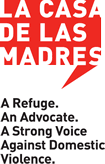If you are in danger, please try to use a safer computer that your abusive partner does not have direct or remote (hacking) access to.
It might be safer to use a computer at a public library, a community technology center (CTC), a trusted friend’s house, or an Internet café.
- If you think your activities are being monitored, they probably are. Abusive people are often controlling and want to know your every move. You don’t need to be a computer programmer or have special skills to monitor someone’s computer and Internet activities – anyone can do it and there are many ways to monitor with programs like Spyware, keystroke loggers, and hacking tools.
- It is not possible to delete or clear all the “footprints” of your computer or online activities. If you are being monitored, it may be dangerous to change your computer behaviors, such as suddenly deleting your entire Internet history if that is not your regular habit.
- Computers can store a lot of private information about what you look at via the Internet, the emails and instant messages you send, internet-based phone and IP-TTY calls you make, web-based purchases and banking, and many other activities.
- If you think you may be monitored on your home computer, be careful how you use your computer since an abuser might become suspicious. You may want to keep using the monitored computer for innocuous activities, like looking up the weather. Use a safer computer to research an escape plan, look for new jobs or apartments, or ask for help.
- Email and Instant/Text Messaging (IM) are not safe or confidential ways to talk to someone about the danger or abuse in your life. If possible, please call a hotline instead. If you use email or IM, please use a safer computer and an account that your abuser does not know about.
If you are in danger, please:
- Call 911
If you are concerned or would like more information:
- Call La Casa’s domestic violence hotline (1-877-503-1850) or the U.S. National Domestic Violence Hotline (1-800-799-SAFE or TTY at 1-800-787-3224).
- Remember that “corded” phones are more private and less interceptable than cordless phones or cell phones.
- Be aware that you may not be able to reach 911 using an Internet phone or Internet-based phone service. So you may need to be prepared to use another phone to call 911.
- Contact your local domestic violence program or shelter to learn about free cell phone donation programs.
Adapted from the National Network to End Domestic Violence.



